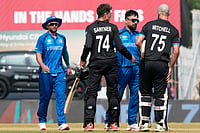In itself, the central idea of the novel is interesting: a small, middle-aged, middle-class man, both timid and faceless—the kind who merges with the crush of returning feet at six o clock—is forced to confront the disappointments and failures of his life by the appearance of a baby girl, the child of his dead sister thrust upon him in the still of night. Shaken out of his emotional torpor, the man decides to bequeath his history to the baby in anticipation of her need, one day, to know her own, and so settling her down in the room next to his, he proceeds to write his stories. Stories—both real and imagined—about his mother and his father, about himself, his sister, and the incestuous love that begot the sleeping child. And as he strains to sanctify that love, make it seem an act of beauty in an otherwise harsh and alienating world, the man weaves a phantasmagorical tale that blurs reality with fiction and is full of violence.
This is what the book intends, but unfortunately does not quite achieve. The problem is that despite its dark, shadowy world, despite the ostensible emotional overcharge of his story, despite the fact that he moves from denial to a proud assertion of his fatherhood at the end, The Blue Bedspread—lax about both plot and psychological verisimilitude—offers about as much catharsis as the horror stories a huddle of school children might tell each other to pass a tedious boarding school evening. A drunken father crashes plates against the wall and sodomi-ses his son, a mother waves at a stranger across the road, a brother reaches for his sister's nipples beneath a blue bedspread, a husband tortures his wife with sadistic games, a daughter gouges her mother's eyes out, some mothers-in-law kick their pregnant daughters-in-law, others lick their groins in ecstasy, a neighbour beats his wife then kisses a Sarajevo woman on the TV...
Why do they do this? Sodomy with a son is extreme even for a drunk, what triggers that moment of depravity? If the book is seen from the central character's viewpoint, how can he know what his neighbour feels? What's real and what's imagined? For instance, is the sister's husband really obsessively cruel or does the brother make up the story about the torture with the albino cockroach? And if he's not cruel, why does the sister leave him and come to her brother for "one day and half a night" before she disappears again? The Blue Bedspread doesn't even pretend to answer these questions or plug the stylistic loopholes in the plot. In fact, there's little to anchor this gothic tale but a grouping of chapters under sections: father, mother, sister, brother, visitors.
But all this can be overlooked. One need not know the cast's biography to empathise with their story and even Shakespeare sometimes plotted poorly. But the moot question is, can the characters bear the burden of the writer's intention? No, they're too unfl-eshed, too slight, too inconsistent. Their passions and tortured imaginings seem to arise more out of the whims of the novelist than the logic and compulsion of their own beings. A novel—especially one this black —demands psychological complexity, and that is the book's greatest failing. Declining a serious inquiry into the emotional wellsprings of his characters, Jha resorts to short cuts: images, shock value, implicit hints, fractured memories. The pity is that in doing this, much of the book degenerates into the irritatingly gratuitous.
This book began as a series of short stories, and given Jha's skill for this genre, would've probably done well as an anthology. But woven from short story to novel, the tacking shows large and The Blue Bedspread is unfortunately a patchwork piece. Occasionally, like when his sister's pyre burns and the man starts to write, Jha's prose takes on a charge, an urgency, like swiftly edited intercuts in a film—presaging the possibilities of a new form in the future. Meantime, traditionally a novel must transform experience and move the reader. The Blue Bedspread, like much of Indian writing in English as yet, does not do this.






















